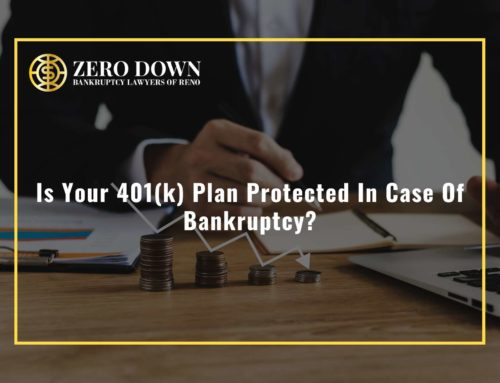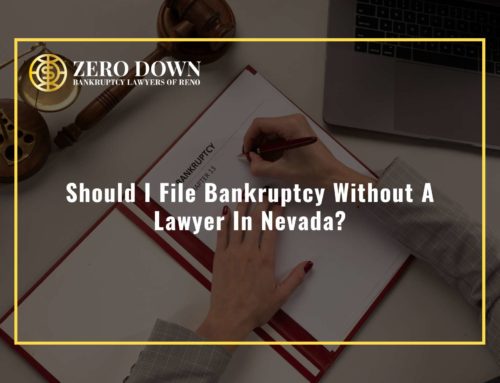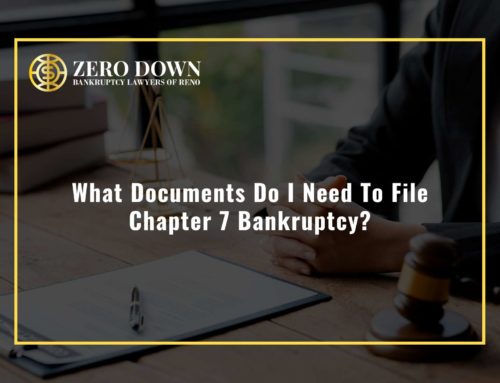Small Business & Bankruptcy: How To File & What To Know
What Type Of Bankruptcy Is Right For My Small Business?
When your small business starts to struggle, it’s normal to feel concerned and unsure about where to turn. In many cases, small business bankruptcy can be one of the best ways to protect your business. Although some business owners are opposed to filing for bankruptcy, it can be an effective tool for small business owners to reorganize their finances while protecting the company.
If your small business is struggling to manage debt, consult with an experienced Reno bankruptcy attorney to discuss whether bankruptcy might be a good option to protect your assets, discharge your debts, and get a fresh start. Your attorney can help you understand the benefits and disadvantages of filing for bankruptcy as you determine your next steps.
What Type Of Bankruptcy Should I File?
Small business owners can choose between filing Chapter 7, Chapter 11, or Chapter 13 bankruptcy. Each of these chapters will manage the business debt differently, but the primary difference is that filing Chapter 7 will permanently end the business if it is registered as a corporation or LLC. Filing Chapter 11 and Chapter 13 enables the business to continue operating.
Chapter 7 bankruptcy might be the right choice if you can’t see any way forward with your business. For sole proprietors, Reno Chapter 7 bankruptcy is a way to resolve both personal and business debts. If your business is structured as an LLC or corporation, Chapter 7 can become a way to liquidate your business so you can move forward.
For many small business owners, Chapter 7 bankruptcy offers a way to favorably liquidate the business because unpaid employment taxes, sales taxes, and other taxes can be paid from the liquidation of the business assets. If you choose to file this type of bankruptcy, a trustee will be assigned to manage the liquidation and distribution of your small business assets. LLCs and corporations are not allowed to claim any asset exemptions, but the trustee may opt not to liquidate assets in some cases, such as if the asset value is less than a lien amount.
Chapter 11 bankruptcy is a type of debt restructuring that enables LLCs and corporations to stay in business. As the business owner, you’ll work with your Reno bankruptcy law office to submit a debt reorganization plan. If the plan is approved, your business can continue operating while paying off debts over a specified time.
Chapter 13 bankruptcy is a type of personal bankruptcy; LLCs and corporations are not eligible to file this way. However, a Chapter 13 bankruptcy can be filed by sole or joint proprietors, such as a married couple who files jointly, to reorganize their business and personal debts while keeping their business operational.
Some bankruptcy cases can become more complex. If the owners of a corporation or LLC are legally obligated to business-related debts, the owners may need to consider filing bankruptcy individually. Filing as a corporation through Chapter 7 or Chapter 11 will not protect them as individuals. In these cases, your attorney can examine the situation and help you determine which bankruptcy chapter is right for you.
Which Type Of Bankruptcy Filing Is Right For Me & My Small Business?
As you consider whether filing for bankruptcy is right for you and your business, you’ll find there are many factors to consider. This includes the cost of filing the bankruptcy and what future you anticipate for your business. If you are sure you want to keep your business open, Chapter 11 might be the best choice. For sole and joint proprietors who are personally involved in the business debt, Chapter 13 may be right. When it might be time to close your business altogether while discharging your debts, Chapter 7 can be the best option.
An experienced Reno bankruptcy attorney can provide solid advice that is personalized for your needs. Your lawyer can evaluate the situation, discuss which bankruptcy chapters you may qualify for, explain the various bankruptcy protections and exemptions that are available, and help to answer all of your questions or concerns. Understanding if, when, and how your small business should file for bankruptcy is a crucial consideration to maximize the potential benefits and protections.
What Other Options Do I Have?
Filing for bankruptcy may not be the best choice for everyone, but if your business is struggling under overwhelming debt, you may want to consider the Small Business Restructuring Act (SRBA), which was initiated in February 2020. This new act streamlines the expensive and time-consuming process of filing a Chapter 11 bankruptcy by allowing businesses to receive fast approval of a business restructuring plan. Under the SRBA, the court can force creditors to comply with new terms, ultimately enabling small businesses to continue to operate. Bankruptcy relief is also available for businesses that have under $7.5 million in annual revenue, making SRBA an option for about 70% of small businesses.
Consult With An Experienced Bankruptcy Attorney In Reno
The attorneys at Zero Down Bankruptcy of Reno have extensive experience guiding individuals and businesses through the process of filing for bankruptcy. Our knowledge and resources give us the tools you need to manage your bankruptcy case and help you move forward in the right direction. If your small business is overwhelmed with debt and unsure where to turn, contact us today to schedule your confidential consultation and learn more about your options.
Zero Down Bankruptcy Lawyers Of Reno
Email: info@renobankruptcylawyer.co
Phone: (702) 842-0700
Las Vegas:
5552 Ashley Creek St
Las Vegas, NV 89135
North Las Vegas:
7251 W Lake Mead Blvd
Las Vegas, NV 89128
Henderson:
1489 W Warm Springs Rd #110
Henderson, NV 89014










